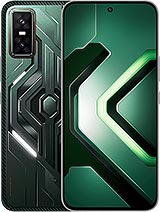Honor X7c alternatives
Tap above to see alternatives.
Samsung Galaxy Z Flip7 alternatives
Tap above to see alternatives.
Samsung Galaxy Z Flip7

Samsung Galaxy Z Flip7
-
Exynos 2500
3 nm
-
4300 mAh
25W
-
6.9"
1080 x 2520 pixels
-
50 MP
4K@30/60fps
-
Specs

2x2.2 GHz Cortex-A78
6x1.95 GHz Cortex-A55
1x3.3GHz Cortex-X5
2x2.74GHz Cortex-A725
5x2.36GHz Cortex-A725
2x1.8GHz Cortex-A520
12GB 512GB (UFS 4.0)
f/1.8, (wide), PDAF
2 MP
f/2.4, (depth)
Samsung S5KGN3, f/1.8, 23mm (wide), 1/1.57", 1.0µm, dual pixel PDAF, OIS
12 MP
Samsung S5K3LU, f/2.2, 13mm, 123˚ (ultrawide), 1/3.2", 1.12µm
1080p@60/120/240fps
720p@960fps, HDR10+
f/2.2, (wide)
Sony S5K3J1, f/2.2, 23mm (wide), 1/3.0", 1.22µm
SIM1: Nano, SIM2: eSIM
17 5G bands
n1, n2, n3, n5, n7, n8, n12, n20, n25, n26, n28, n38, n40, n41, n66, n77, n78
In this performance comparison, the Samsung Galaxy Z Flip7 with its Exynos 2500 (3nm) performs better than the Honor X7c with the Qualcomm Snapdragon 4 Gen 2 (4nm), thanks to superior chipset efficiency.
Samsung Galaxy Z Flip7 offers 7 years of OS updates, while Honor X7c does not have confirmed OS update information. Samsung Galaxy Z Flip7 receives 7 years of security updates, while Honor X7c does not have confirmed security update information.
Samsung Galaxy Z Flip7 features a superior AMOLED display, while Honor X7c comes with an LCD panel. Both smartphones offer the same 120 Hz refresh rate. Samsung Galaxy Z Flip7 also boasts a brighter screen with 2600 nits of peak brightness, enhancing outdoor visibility. Both phones have the same screen resolution.
Honor X7c comes with a larger 5200 mAh battery, which may offer longer usage on a single charge. Honor X7c also supports faster wired charging at 35W, compared to 25W on Samsung Galaxy Z Flip7. Samsung Galaxy Z Flip7 supports wireless charging at 15W, while Honor X7c lacks this feature.
Honor X7c offers better protection against water and dust with an IP64 rating.
- Honor X7c – Check price here
- Samsung Galaxy Z Flip7 – Check price here
¹ Scores can vary even with the same chipset due to RAM, thermals, and software optimization.











